Many moms are taken by surprise when their newborn starts teething. This is when it dawns on you what all the crabbiness, night waking and drooling was about. When your baby starts to teeth, they may or may not show symptoms. Some babies go through teething pain for a few months making them very irritable. So when does your baby start teething? Read on to find out.

When Do Babies Start Teething?
The teething process begins when a baby’s first set of teeth begin to break through their gums. The process normally begins at the age of 6 months. However, some babies can start as early as 3 months while others take up to 12 months. By the time of about 3 years old, the baby should have a total of 20 primary teeth, also referred to as milk teeth. Teething usually starts with the front lower teeth followed in quick succession by the rest. However, there are rare occasions when a baby is born with their teeth. Below is a general guide how teeth break through the gums:
Front lower teeth – 5 to 7 months
Front upper teeth – 6 to 8 months
Upper lateral incisors – 9 to 11 months
Lower lateral incisors – 10 to 12 months
Canines – 16 to 20 months
Molars – 12 to 16 months
Second Molars – 20 – 30 months
There are times when teething might delay longer than usual. This is normal and there shouldn’t be a reason for worry. However, if your baby is 18 months old and you notice that the growth rate of her bones, skin and hair is normal, but they’re not teething, then you need to see your doctor.
What Are the Symptoms of Baby Starting Teething?
Drooling
Drooling is normal for babies. A teething baby will drool excessively. Most times, they will have a wet chin. The drool can make their chin a bit sore. Use a soft tissue to dab it as often as you can. You should smear some petroleum jelly on their chin to ease the discomfort.
Sleeplessness
Teething is a painful process for your baby and can keep them up at night. If your baby is restless and can’t seem to settle down, he/she is probably teething. Try to comfort you kids if they seem unsettled.
Flushed Cheeks
Does your baby look flushed most of the time? The rosy red cheeks could be a sign that babies have started teething. The redness is usually as a result of the irritation caused by the tooth that’s coming through the gum. The baby’s cheeks will also feel warm.
Chewing Objects
While it’s normal for babies to put everything they come across in their mouth, but if you notice they’re nibbling on anything they can get their hands on, they’re probably teething. You can buy them a teething ring or a piece of carrot to gnaw on.
Chewing Their Fingers
As mentioned above, teething brings with it a lot of pain and discomfort. You baby might start chewing their fingers for some relief. The best you can do for them is to ensure their hands are always clean to prevent them from swallowing germs.
Swollen Gums
So, when do babies start teething? What changes will happen to the gums? Will they be swollen or appear redder than usual? If yes, then they’re probably teething. Rub her gums with your finger to help soothe them.
Poor Feeding
If babies’ gums are swollen and sore, they might find suckling painful. For this reason they might avoid feeding altogether despite their hunger. If they’ve already started feeding on solids, you can try giving them yoghurt or apple puree to soothe the condition.
Being Irritable
Babies will cry more than they usually do and become prickly when they’re teething. You should cuddle them and shower them with attention to keep their mind off the discomfort.
How to Soothe Your Baby's Discomforts When Teething
While teething can be a grueling experience for your baby, there’s something you can do to make the experience more bearable.
Rub their gums with a clean finger for about 2 minutes to soothe them.
Buy them something to chew on. A teething ring would be handy.
You can give them OTC pain relievers. Make sure to follow the instructions given on the bottle.
NOTE: Avoid using teething gel since it can cause numbness in the baby’s throat.
Brush Your Baby's Teeth
Now you have known the answer to "When do babies start teething?" and also the signs when baby teething happens. It's time to know how to take care of those new teeth.
Choose a soft toothbrush with a small head and large handle. You can only do this after the teeth have started sprouting.
Wet the toothbrush and use very little toothpaste – pea sized amount or less.
Brush gently around your baby’s few teeth making sure to clean the front and back.
You should brush your baby’s teeth until they’re old enough to hold the brush on their own.


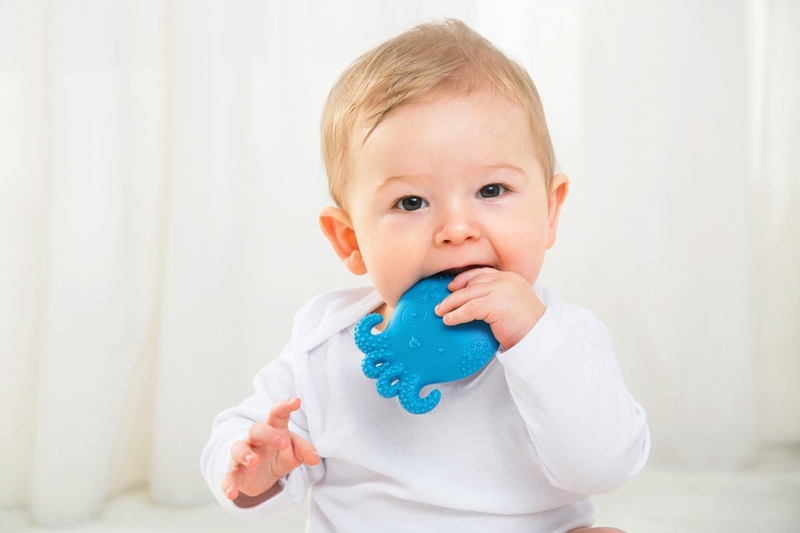
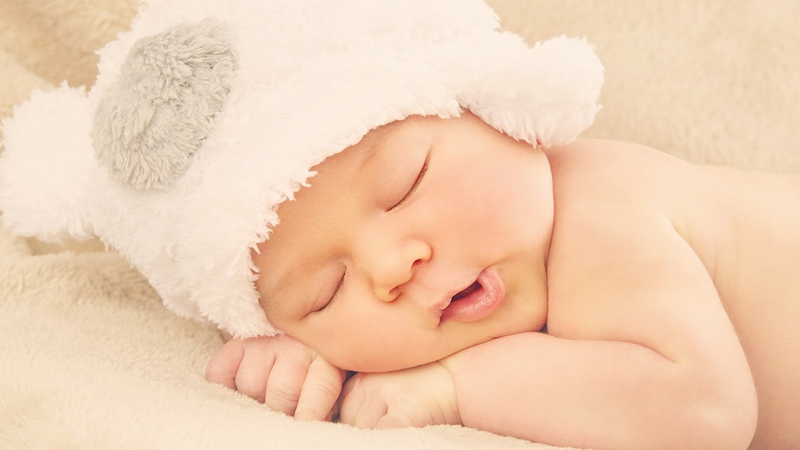
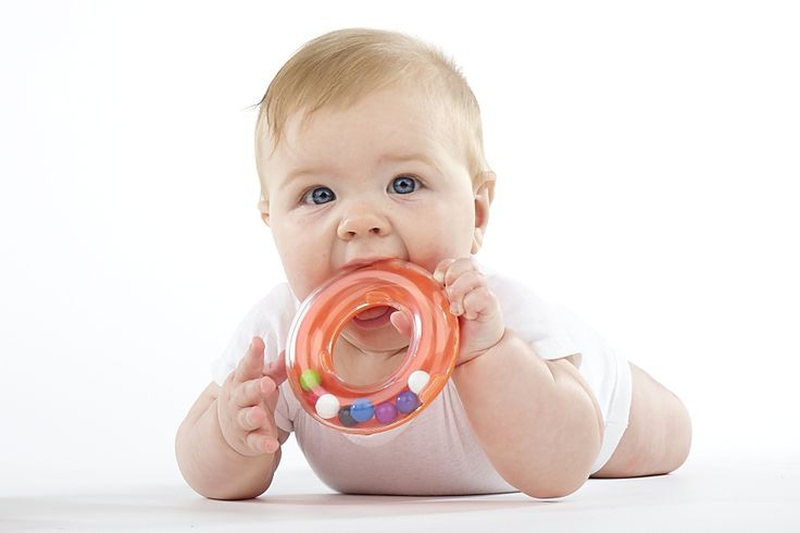
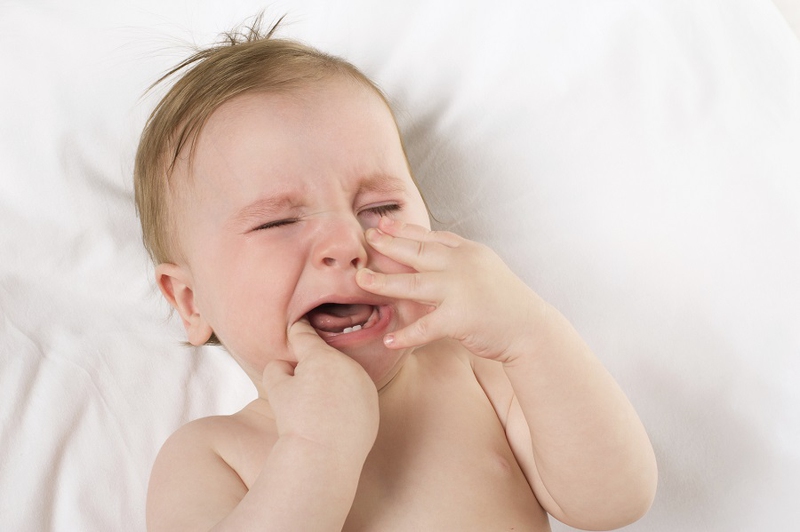
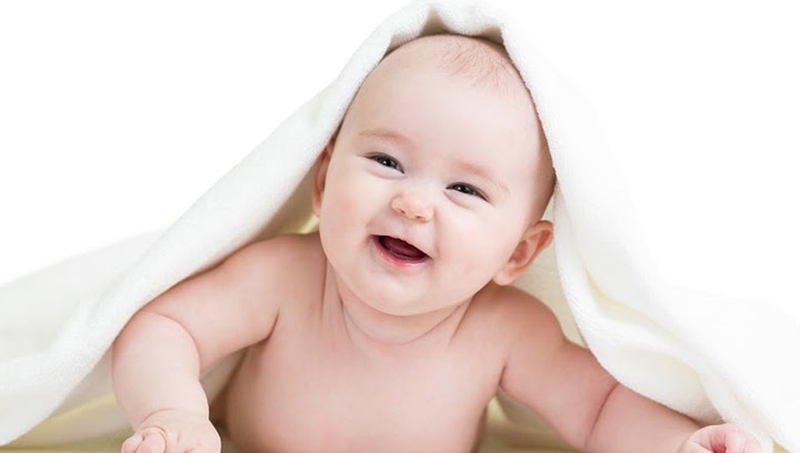
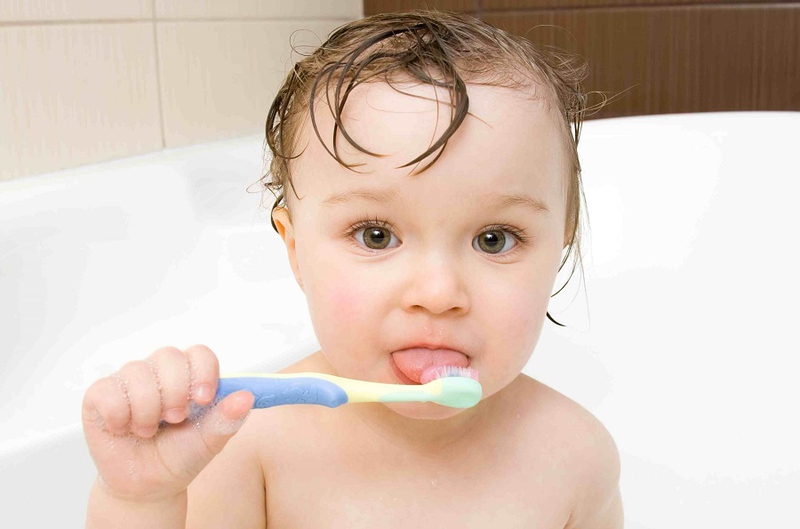
View All Comments /Add Comment